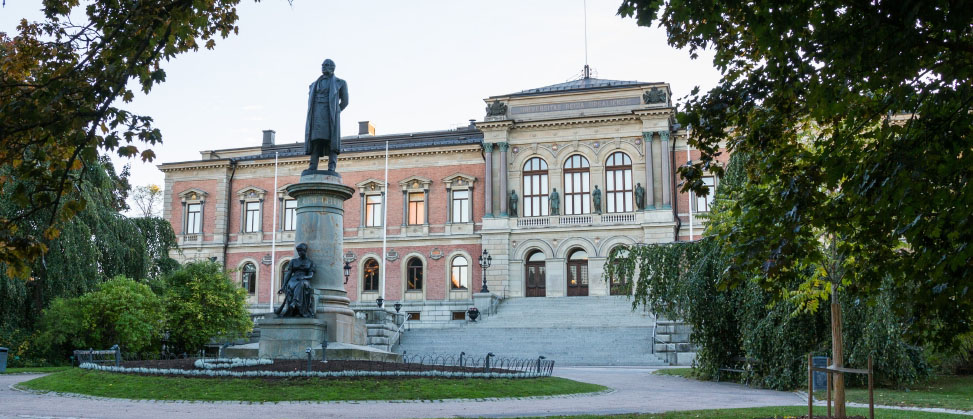Two post-doctoral opportunities at Uppsala University
21 February 2022
Uppsala University offers two post-doctoral opportunities. The deadline for both is March 1st. The first one is:
Postdoctoral position in modelling of carbon burial in lake sediments.
Lake sediments constitute a carbon sink that has a cooling effect on climate. Current estimates of the global-scale magnitude of the lake carbon sink are however very uncertain as they build on extrapolation from few, geographically biased measurements. This project aims at building a process-based model of organic carbon burial in lake sediment, which will be validated at different scales, and then driven by the big data supplied by the climate science community through the ISIMIP project: globally-gridded and daily time-step data on climate, land use, water flow, and the thermal structure of >17,000 lakes. This allows a robust global estimation of the lake sediment carbon sink to be achieved, which is consistent with other efforts to simulate the Earth system. The project is financed through a grant from the Swedish Research Council.
More information here.
The second one is:
Carl Tryggers Post-doctoral Scholarship: Improving the Prediction of Dissolved Organic Matter (DOM) Degradation Rates across Soil, Freshwater and Marine Ecosystems.
Understanding controls on DOM degradation rates remains challenging and controversial across soil, freshwater and marine sub-disciplines. This project will be integrated into a strong larger collaborative environment gathering scientists across disciplines. This post-doctoral project will use a dataset generated from a combination of high-resolution mass spectrometry (MS) and nuclear magnetic resonance (NMR) spectroscopy together with biodegradation kinetics for DOM samples across soil, freshwater and marine environments. Some of the data is already generated and some will be generated during the project.
This project takes an important step forward by optimizing the chemometric interpretation of chemical information generated by MS and NMR. Beyond MS and NMR, the project will also focus on developing a flexible and comprehensive approach to describe a wide range of DOM degradation kinetics for samples across ecosystems. While some project aims are well defined, there is flexibility in terms of the wider direction of the project.
You will be based at the Department of Ecology and Genetics, Uppsala University, Sweden. The PI of the project is Dolly Kothawala and involves collaborations with Dr. Núria Catalán at the Climate and Environment Sciences Laboratory (LSCE), CNRS, Paris, France.
As the project is largely centered on data processing, and given the current COVID-19 situation, we will consider applicants aiming to work remotely during parts of the project.
Description of Scholarship. The Carl Tryggers foundation provides financial support directly to the successful applicant and is a tax-free scholarship for two years (https://www.carltryggersstiftelse.se/). The applicant will have access to many different facilities and support programs at the limnology program and Uppsala University for post-doctoral researchers.
Below are Desirable Qualifications:
- Background in biogeochemistry and working with natural organic matter
- Background in organic chemistry, analytical chemistry, biochemistry and/or chemometrics
- Strong programming skills in R, Matlab or other platforms
- Previous experience with data acquired from mass spectrometry and/or nuclear magnetic resonance spectrometry
Due Date and Application Package:
Applications are due March 1st 2022. Anticipated start date in summer/fall 2022.
Please submit your application as a single pdf to dolly.kothawala@ebc.uu.se with heading: Application for Carl Tryggers – Uppsala University. Ranked applicants will be interviewed by Zoom.
Please compile an application package including the following:
- Cover letter justifying how your background fits with the outlined project (max. two pages)
- A full CV with publication list including submitted manuscripts
- Certificate of PhD degree
- Contact information for two referees most familiar with your work
